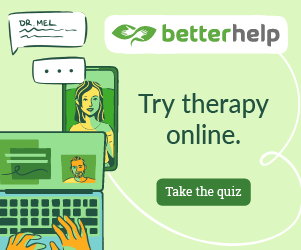Contents
What is Addiction?
Addiction is a chronic condition in which a person compulsively and continuously uses a substance or engages in a behavior even though it is causing psychological and physical harm. Addiction frequently involves ingesting alcohol or other drugs but can include other substances like food or tobacco. Behavioral addictions include gambling, sex or pornography, internet/technology, shopping or cutting. Addiction is a vicious cycle of chasing a pleasurable (often euphoric) habit that provides a short-term reward while creating long-term negative consequences. Addictions frequently develop in reaction to stress or trauma. The addict has a hard time controlling the behavior in spite of the problems connected to their actions. The adverse effects can damage ones health, relationships, finances, self-esteem, and even manifest as legal consequences. Addictions can range from mild to severe in terms of impairment and consequences. People may struggle with addictions for months to years to decades. Some addicts have periods of sobriety interspersed with times of active use. Addition is complex and there are numerous theories ranging from socio-behavioral causation to the medical model.
What is EMDR Therapy?
EMDR (Eye Movement Desensitization and Reprocessing) is a mental health treatment originally designed to heal trauma, especially for single-event traumas and PTSD (Post-Traumatic Stress Disorder). It has since been found to have broader applications and to be helpful in treating conditions resulting from difficult life events as well as unhealthy or self-destructive habits. Conditions such as addiction, depression, OCD and grief have all responded well to EMDR. This therapy is unlike traditional talk therapy because it utilizes an external stimulus as to tool to help the brain process and “digest” traumas that are stuck and unresolved. The client is instructed by the therapist to maintain a dual focus on a distressing memory while simultaneously paying attention to an external stimulus. Though the client traditionally follows the therapist’s finger with the eyes as it moves back and forth, there are other kinds of external stimuli that can be visual, auditory, or tactile. This stimulation, referred to as “bilateral stimulation”, is always designed to engage the whole brain by activating both hemispheres. This can also take the form of following a moving dot back and forth across a screen, listening to a sound with headphones that alternates between the right and left ears, or tapping on the palms in an alternate left-right fashion. Some believe the technique mimics the effects of Rapid Eye Movement Sleep (REM), a sleep state in which the eyes move back and forth. It is during this state that the brain effectively processes memories and resolves traumas. Using bilateral stimulation while recalling a distressing memory also distracts the person from the memory itself, creating room for the brain to process the event and creates a new, non-threatening association with the incident. Research studies and first-hand accounts from EMDR practitioners have found te method to be both effective and to work quickly. Some patients report significant improvements in only a few weeks, improvements that could take years to achieve in traditional therapy.
How Does EMDR Therapy Help With Addiction?
Because addictions frequently develop in response to a trauma, treating the root cause with EMDR naturally helps resolve the addiction issue. People may turn to an addictive behavior following a trauma to cope with their pain or use substances to “self-medicate” symptoms such as anxiety, depression, or nightmares. Many people with substance abuse issues have co-occurring PTSD which makes EMDR a valuable component in addiction treatment.
Another way in which EMDR can be applied to addiction is by targeting something called an “addiction memory”. These are memories that help perpetuate the pattern of addiction and may prevent the person from moving forward. An addiction memory may be a general sense of losing control, the recollection of preparatory behavior, or how a person felt while taking a specific drug/engaging in an addictive behavior. EMDR can help process these memories which makes them less distinct and powerful. By dampening the effect of these memories, the person is less weighed down by highly charged emotional states that drive the behavior.
Is EMDR Therapy Effective At Treating Addiction?
Though the effectiveness of EMDR for addiction is still being researched, there have been several studies that have shown the benefits of the method. A 2008 study by Hase and Sack in The Journal of EMDR Practice And Research studied the impact of EMDR on alcohol dependency. In one group, EMDR was used to process addiction memories in addition to receiving standard treatment. The other group only received treatment as usual. At the end of the study, the group that also received EMDR showed a significant reduction in cravings post-treatment and at a one month follow-up. The group receiving treatment as usual did not show these benefits. A 2015 study by Franklin surveyed EMDR therapists and patients with physical and behavioral addictions about their progress with EMDR therapy. When the data was analyzed, there was a significant reduction in patients’ perceived degree of addiction following EMDR. Furthermore, these results were maintained over time and relapses were rare.
Trauma And Addiction
As previously mentioned, trauma and addiction are intimately linked. There are many kinds of trauma, including physical assault, sexual assault or rape, domestic violence, surviving natural disasters, neglect by parents or caretakers, bullying, accidents such as fires or car crashes, terminal illnesses, or witnessing someone being harmed or dying. Larger scale traumas include being in battle, living through a war, or surviving a food shortage. Some professions, such as first responders or medical professionals working in high intensity cases, are routinely exposed to stressful and traumatic situations, putting them at higher risk of developing addictions. When people are unable to cope with the impact of the traumatic occurrence, they may respond in maladaptive ways. One “band-aid” approach is the use of physical substances or engaging in addictive behaviors. It is common knowledge that people may start drinking or engaging in other self-destructive behaviors when a life event shakes them to the core. There is an even stronger connection between childhood trauma and developing an addiction. One study found that children who experienced abuse were five times more likely to become alcoholics than those where not abused as children. The addiction has a way of temporarily relieving the pain and allowing the person to feel well, “normal”, or even euphoric for a time. Obviously, this only leads to more problems and only complicates the underlying issue. The addiction may be engaged in again in reaction to the negative consequences from the behavior, thus perpetuating the pattern. Some people feel so hopeless and helpless following a trauma that they cease to care about the consequences related to addiction. They may say it is the only time they feel well or see it as a way to escape their problems.
How To Find EMDR Treatment
Because EMDR trained therapists are less numerous than traditional psychotherapists, finding a qualified EMDR practitioner may take a bit more effort. However, there are a number of excellent options for in person therapy, online, and even self-guided treatment.
BetterHelp, a virtual platform, is one of the easiest and most cost-effective options. BetterHelp charges a monthly subscription instead of a per session rate, making the care more affordable. You will be matched with a qualified therapist who may reside anywhere in the world. Sessions are all online and treatment can be conveniently done from home. If you are interested in this avenue, there is a short questionnaire to complete which will help with the matching process.
If you would prefer in-person treatment, an internet search can help locate an EMDR provider local to you. The EMDR International Association (EMDRIA) website has a directory where you can search for a provider near you. Word of mouth is an excellent way to find a recommendation and you can always ask a trusted healthcare provider.
With modern technology, it is possible to self-administer EMDR on your own from home. While it is often best to see a therapist, self-guided EMDR is an option if there are barriers to accessing treatment, such as living in a rural location or being unable to afford a therapist. We recommend VirtualEMDR for self-guided virtual EMDR therapy. Their virtual program follows the same principles and stages that are used by therapists in online or in-person session. Self-guided treatment may also be preferable for those who would prefer to work on their own without the aid of a therapist. Read our full review
More tips on self-administered EMDR can be found in this article: https://emdrhealing.com/how-to-self-administer-emdr-therapy/
The Takeaway
EMDR is an empirically validated psychotherapy technique originally used to treat trauma. The modality can also be used to treat a broader variety of conditions, including addiction. EMDR appears to be effective in working with addictions due to the strong connection between addiction and trauma. If you are interested in EMDR, use our tips to find treatment that is in-person, online, or even self-administered.





